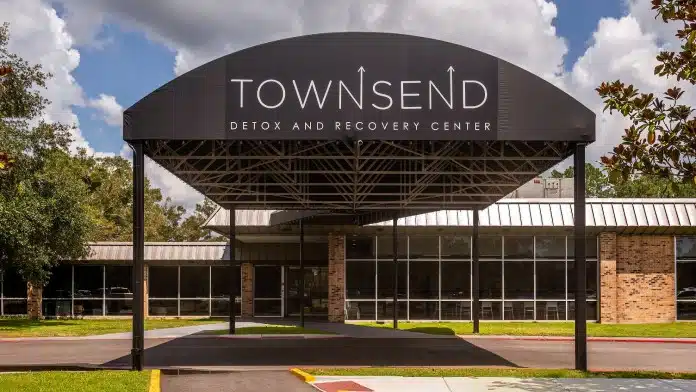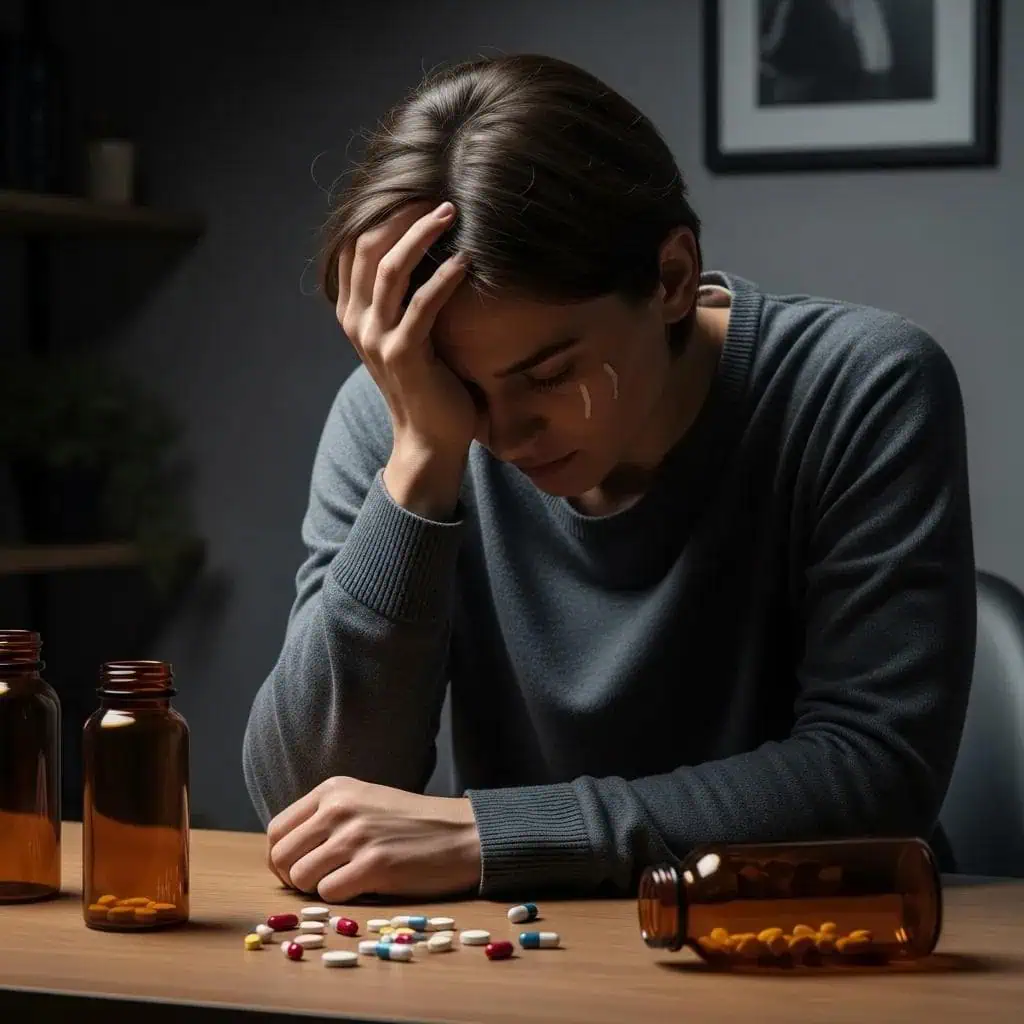
Addiction is a pervasive issue that affects individuals from all walks of life, including in vibrant cities like New Orleans, Louisiana. Known for its lively culture, music, festivals, and nightlife, New Orleans offers an exciting atmosphere, but it can also contribute to substance abuse problems. Whether you’re struggling with alcohol addiction, drug dependence, or both, Addiction Help Line America is here to help. With a range of treatment options available, the city is home to numerous resources to guide you or your loved one on the path to recovery.
The Scope of Alcohol and Drug Addiction in New Orleans
Alcohol and drug addiction are serious health concerns in New Orleans and the surrounding regions. As one of the cultural hubs of the United States, the city also struggles with substance abuse issues that include both illicit drug use and alcohol dependency. The unique combination of stress, economic challenges, and the party-driven culture of the city creates an environment where addiction can flourish.
According to studies, Louisiana ranks among the highest in the nation for substance abuse. This is particularly troubling in New Orleans, where the social fabric can often encourage excessive drinking and drug use. Whether it’s due to stress, trauma, peer pressure, or the availability of substances, addiction remains a major concern that can destroy lives and tear families apart.
But recovery is possible, and treatment is available in New Orleans. Addiction Help Line America is committed to connecting individuals with resources and treatment programs that will help them overcome addiction and regain control of their lives.
National and Statewide Statistics on Alcohol and Drug Addiction
- Substance Abuse in the United States:
- According to the National Institute on Drug Abuse (NIDA), in 2020, approximately 19.3 million Americans aged 18 and older had a substance use disorder (SUD), which is around 7.7% of the population.
- Alcohol use disorder affects 14.5 million adults in the U.S., with an additional 430,000 adolescents aged 12 to 17.
- Opioid overdose deaths reached over 70,000 in 2019 in the U.S., with a significant increase in deaths due to synthetic opioids, such as fentanyl.
- Drug and Alcohol Use in Louisiana:
- According to the Louisiana Department of Health (LDH), 1 in 10 adults in Louisiana struggles with alcohol or drug addiction.
- Louisiana’s drug overdose deaths have significantly increased over the years, with opioid overdose deaths being particularly alarming. In 2020, Louisiana saw 1,300 drug overdose deaths, which was a 38% increase from the previous year.
- The opioid epidemic in Louisiana mirrors the national trend, with the state experiencing an increase in deaths related to prescription painkillers, heroin, and fentanyl.
- Louisiana ranks as one of the top 10 states for alcohol-related deaths. It is estimated that alcohol-related deaths in Louisiana accounted for 2,000 deaths annually.
- Addiction Treatment Statistics in Louisiana:
- According to the Substance Abuse and Mental Health Services Administration (SAMHSA), over 70% of people with addiction never seek help.
- In Louisiana, about 1 in 5 adults who have a substance use disorder will receive treatment for it. However, treatment availability varies greatly by region, with urban areas like New Orleans having more access to rehab centers compared to rural areas.
- Teenage Drug and Alcohol Use in Louisiana:
- The Louisiana Behavioral Risk Factor Surveillance System (BRFSS) reports that 8.4% of high school students in Louisiana have used illicit drugs such as marijuana, cocaine, or heroin.
- Marijuana remains the most commonly used illicit drug in Louisiana, with nearly 9% of teenagers admitting to using it in the past 30 days.
- Fentanyl Crisis:
- In Louisiana, fentanyl—a synthetic opioid that is 50 to 100 times stronger than morphine—has become a major contributor to the opioid overdose crisis. Fentanyl-related overdose deaths in Louisiana increased by 56% from 2019 to 2020, making it the most dangerous substance involved in drug deaths.
- Addiction and Mental Health Co-occurrence:
- It’s important to note that mental health disorders often co-occur with substance use disorders. In Louisiana, an estimated 30% of individuals who are treated for drug addiction also have a co-occurring mental health disorder, such as anxiety, depression, or PTSD. These individuals often require dual diagnosis treatment to address both their addiction and mental health needs simultaneously.
- Hospital Admissions and ER Visits:
- Emergency room visits related to alcohol and drug use in Louisiana have been steadily increasing. In New Orleans, local hospitals report thousands of annual emergency room admissions for alcohol poisoning, opioid overdoses, and injuries related to intoxication or drug use.
The Many Faces of Alcohol & Drug Addiction
Alcohol and drug addiction are complex and multifactorial diseases, with various substances causing different types of dependency. People can become addicted to both legal and illegal substances, and many of these substances are abused in large quantities, causing devastating physical and psychological effects.
Here is an overview of some of the most commonly abused substances in New Orleans:
- Alcohol: Alcohol is the most widely used substance in New Orleans and many other parts of the country. While social drinking is common, excessive and long-term alcohol consumption can lead to alcohol use disorder (AUD). Chronic alcohol use has devastating effects on the liver, heart, and brain, and it significantly increases the risk of cancers, particularly in the digestive system. Drinking large quantities of alcohol can also result in mental health issues such as depression and anxiety, which further fuel the cycle of addiction.
Risk of Overuse: Many individuals drink in social settings, but the line between social drinking and binge drinking can often blur. In New Orleans, with its vibrant nightlife, festivals like Mardi Gras, and an emphasis on social gatherings, people may engage in binge drinking, consuming far more than the recommended limit. This can rapidly lead to alcohol dependency. - Opioids: The opioid epidemic has swept across the nation, and New Orleans is no exception. Prescription painkillers such as oxycodone, hydrocodone, and morphine are often abused in large quantities, leading to physical and psychological addiction. Additionally, heroin and illicit fentanyl—an opioid that is 50 to 100 times stronger than morphine—have caused a significant spike in opioid overdose deaths.
Risk of Overuse: Opioids are incredibly addictive, and individuals often build a tolerance, requiring larger doses to achieve the same effect. This leads to opioid misuse and potential overdose. The tragic rise of fentanyl-laced heroin has made opioid addiction even more dangerous, as users may unknowingly ingest a deadly dose. - Cocaine: Cocaine, whether in its powder form or as crack cocaine, is a powerful stimulant that affects the brain’s reward system. Cocaine use has a long history in New Orleans, especially during the 1980s crack epidemic. Despite its illegal status, cocaine is still a widely abused drug in the city, and individuals often consume it in large quantities to experience feelings of euphoria, energy, and increased sociability.
Risk of Overuse: Cocaine is known to be highly addictive, with users often building up a tolerance. Consuming large amounts of cocaine increases the risk of severe health consequences, including heart attacks, strokes, seizures, and mental health conditions such as paranoia and hallucinations. - Methamphetamine (Meth): Methamphetamine is a highly addictive stimulant that is often consumed in large quantities, either through smoking, snorting, or injecting. Meth use has seen a rise in New Orleans in recent years, often in conjunction with other drugs. The euphoric effects of methamphetamine are short-lived, and individuals often binge on the drug to prolong the high.
Risk of Overuse: Chronic meth use leads to severe physical and psychological consequences. Users often experience intense anxiety, hallucinations, and aggressive behavior. Additionally, methamphetamine severely damages the brain’s ability to function, leading to memory loss, cognitive decline, and emotional instability. Long-term use can also lead to “meth mouth,” a condition where teeth deteriorate due to the drug’s impact on oral health. - Synthetic Drugs: Synthetic drugs, such as synthetic cannabinoids (“Spice” or “K2”) and synthetic cathinones (“bath salts”), have become an increasing concern. These drugs are chemically engineered to mimic the effects of traditional drugs like marijuana or amphetamines. However, they are often far more dangerous and unpredictable.
Risk of Overuse: Synthetic drugs are typically consumed in large quantities to achieve intense effects. These substances can cause extreme agitation, hallucinations, and violent behavior. As their chemical composition is often unknown, the risks of overdose and long-term damage are heightened. - Benzodiazepines: Benzodiazepines are a class of prescription medications, including Xanax, Ativan, and Valium, that are often abused for their calming effects. While they are effective for treating anxiety and insomnia, they can lead to addiction if used in large quantities or mixed with other substances like alcohol.
Risk of Overuse: Benzodiazepines can be addictive, and individuals who misuse them often do so in conjunction with alcohol or opioids, which significantly increases the risk of overdose. Excessive use of benzodiazepines can cause sedation, memory loss, and in severe cases, respiratory failure.
Seeking Treatment in New Orleans
If you or a loved one is struggling with addiction in New Orleans, there are numerous treatment options available to help you regain control of your life. The treatment process typically includes:
- Medical Detoxification: This is the first step in treating addiction. It helps individuals safely rid their bodies of harmful substances while managing withdrawal symptoms under medical supervision.
- Inpatient Rehab: Inpatient rehabilitation provides a structured, 24/7 environment for individuals with severe addiction. During inpatient rehab, individuals receive intensive therapy, counseling, and support to help them recover.
- Outpatient Rehab: For individuals with a less severe addiction, outpatient programs offer flexibility, allowing individuals to live at home while attending therapy and counseling sessions. This option provides valuable support while allowing individuals to maintain daily responsibilities.
- Therapy & Counseling: Individual and group therapy help individuals understand the root causes of their addiction, develop coping mechanisms, and learn relapse prevention strategies. Cognitive-behavioral therapy (CBT) is a widely used approach for treating addiction.
- Support Groups: Community support groups like Alcoholics Anonymous (AA) and Narcotics Anonymous (NA) offer peer support and guidance for individuals in recovery. These groups help reduce the feelings of isolation that often accompany addiction.
1. Avenues Recovery Center: Drug & Alcohol Rehab In Metairie
- Services: Avenues Recovery Center: Drug & Alcohol Rehab In Metairie provides comprehensive treatment for individuals battling alcohol and drug addiction. They offer inpatient and outpatient services, detoxification, dual diagnosis treatment (for co-occurring mental health disorders), and individual and group therapy.
- Address: 4933 Wabash St, Metairie, LA 70001
- Contact: (504) 322-1651
- Website:https://www.avenuesrecovery.com/locations/metairie-drug-rehab-center/
2. Victory Addiction Recovery Center
- Services: Victory Addiction Recovery Center provides a range of services to support individuals in their recovery journey, including assessment and evaluation, detoxification services, residential and outpatient treatment, individual and group therapy, and family therapy. They also offer aftercare services, life skills training, and dual diagnosis treatment. For specific details, it’s best to contact them directly.
- Address: 111 Liberty Ave, Lafayette, LA 70508
- Contact: (888) 991-2237
- Website: https://myvictorycenter.com/
3. NOLA Detox and Recovery Center
- Services: NOLA Detox and Recovery Center offers comprehensive services to aid individuals in overcoming addiction, including personalized assessments, medically supervised detoxification, residential treatment, and outpatient programs. They provide individual and group therapy, family counseling, and aftercare support to ensure ongoing recovery. Additionally, the center focuses on life skills training and dual diagnosis treatment for those with co-occurring mental health issues. For more specific information, it’s recommended to reach out directly to the center.
- Address: 4201 Woodland Dr, New Orleans, LA 70131
- Contact: (504) 446-1111
- Website: https://noladetox.com/
4. Whispering Oaks Lodge
- Services: Whispering Oaks Lodge offers a variety of services to support individuals in their recovery from addiction, including personalized assessments, medically supervised detoxification, residential treatment, and outpatient programs. The facility provides individual and group therapy, family counseling, and aftercare support to facilitate long-term recovery. Additionally, they focus on life skills training and holistic approaches to address the needs of each client. For more detailed information, it’s best to contact Whispering Oaks Lodge directly.
- Address: 617 Piat Rd, Youngsville, LA 70592
- Contact: (877) 419-3005
- Website: https://www.whisperingoakslodge.com/
5. Serenity Treatment Center of Louisiana
- Services: Serenity Treatment Center of Louisiana provides a comprehensive array of services for individuals seeking recovery from addiction. Their offerings include personalized assessments, medically supervised detoxification, residential treatment, and outpatient programs. The center emphasizes individual and group therapy, family counseling, and aftercare support to promote lasting recovery. Additionally, they incorporate life skills training and holistic therapies to address the diverse needs of their clients. For specific details, it’s advisable to reach out directly to Serenity Treatment Center.
- Address: 2325 Weymouth Dr, Baton Rouge, LA 70809
- Contact: (225) 361-0899
- Website: https://theserenitycenterla.com/
6. Palmetto Addiction Recovery Center
- Services: Palmetto Addiction Recovery Center offers a wide range of services to support individuals on their path to recovery from addiction. Their programs include personalized assessments, medically supervised detoxification, residential treatment, and outpatient options. The center provides individual and group therapy, family counseling, and aftercare support to ensure ongoing success in recovery. Additionally, Palmetto emphasizes life skills training and holistic approaches to address the unique needs of each client. For more specific information, it’s best to contact the center directly.
- Address: 86 Palmetto Rd, Rayville, LA 71269
- Contact: (318) 728-2970
- Website: https://palmettocenter.com/
7. Longbranch Recovery & Wellness Center
- Services: Longbranch Recovery & Wellness Center offers a variety of services to support addiction recovery, including personalized assessments, medically supervised detoxification, residential and outpatient treatment. They provide individual and group therapy, family counseling, and aftercare support, alongside life skills training and wellness initiatives. For specific details, it’s best to contact the center directly.
- Address: 21516 LA-36, Abita Springs, LA 70420
- Contact: (504) 577-2651
- Website: https://www.longbranchrecovery.com/
8. Narconon Louisiana New Life Retreat
- Services: Narconon Louisiana New Life Retreat offers comprehensive addiction recovery services, including detoxification, residential treatment, and life skills training. They focus on a holistic approach to recovery, utilizing personalized counseling and educational programs to help individuals overcome addiction. The center emphasizes support for both clients and their families to foster long-term recovery. For more specific information, it’s best to contact them directly.
- Address: 35059 Bend Rd, Denham Springs, LA 70706
- Contact: (800) 473-0930
- Website: https://www.narcononnewliferetreat.org/
9. Crossroads Recovery Center of Louisiana
- Services: Crossroads Recovery Center of Louisiana provides a range of addiction recovery services, including personalized assessments, detoxification, residential treatment, and outpatient programs. They focus on individual and group therapy, family counseling, and aftercare support to ensure clients have the tools needed for lasting recovery. Their approach emphasizes holistic care to address the diverse needs of individuals in recovery. For more details, it’s recommended to contact the center directly.
- Address: 4626 Sherwood Common Blvd Ste 402, Baton Rouge, LA 70816
- Contact: (225) 239-7088
- Website: https://www.crossroadsrecoveryla.com/
10. Pecan Haven Addiction Recovery Center
- Services: Pecan Haven Addiction Recovery Center offers a variety of services aimed at supporting individuals in their recovery journey from addiction. Their programs include personalized assessments, detoxification, residential treatment, and outpatient services. The center focuses on therapy, life skills development, and aftercare support to promote long-term recovery. For more specific information, it’s best to contact Pecan Haven directly.
- Address: 2321 US-80, Monroe, LA 71203
- Contact: (318) 600-3333
- Website: https://pecanhaven.com/
Conclusion
- Addiction to alcohol and drugs remains a significant challenge in New Orleans, Louisiana, and across the United States. The statistics are alarming, with rising overdose deaths, particularly from opioids like fentanyl, and a growing number of individuals affected by substance use disorders. However, there is hope. Treatment centers in New Orleans and throughout the state are equipped with the tools, therapies, and support necessary to help individuals take the first step toward recovery.
- Whether struggling with alcohol addiction, opioid use disorder, or any other substance abuse issue, it is essential to recognize that recovery is possible. Access to medical detox, inpatient rehabilitation, outpatient programs, therapy, and community support can provide individuals with the foundation they need to rebuild their lives.
- At Addiction Help Line America, we are committed to guiding individuals to the resources they need, connecting them with trusted rehab centers, and supporting them throughout their recovery journey. If you or a loved one is battling addiction, don’t wait—reach out today. With the right help, you can overcome the challenges of addiction and work towards a healthier, happier future.
1. What are the most common types of addiction in New Orleans?
2. How can I find the right rehab center in New Orleans?
3. What are the signs that someone may need addiction treatment?
Increased tolerance to alcohol or drugs
Withdrawal symptoms when not using the substance
Loss of control over substance use
Neglecting responsibilities or relationships due to substance use
Health issues such as liver damage or lung problems
Financial or legal issues caused by addiction
If you or someone you know is showing these signs, it may
4. How long does addiction treatment typically take?
5. Are there treatment options available for people with co-occurring mental health disorders?
Our helpline is 100%
free & confidential
If you or someone you care about is struggling with drug or alcohol addiction, we can help you explore your recovery options. Don’t face this challenge alone—seek support from us.
Programs
Resources
Will my insurance
cover addiction
treatment?
We're ready to help
Find the best
drug or alcohol treatment
center
Are you or a loved one struggling with addiction? Call today to speak to a treatment expert.












